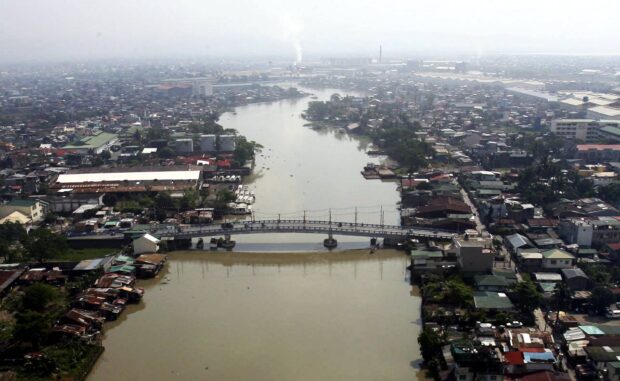
Pasig River (INQUIRER FILE PHOTO)
MANILA, Philippines — Some rivers in Metro Manila and Luzon have tested positive for compounds that can affect hormones in the human body, researchers from the University of the Philippines (UP) Diliman said.
Researchers Maria Espino, Kate Galera, and Katrina Sta. Ana in their study entitled Contamination of Bisphenol A, Nonylphenol, Octylphenol, and Estrone in Major Rivers of Mega Manila, Philippines, said endocrine-disrupting compounds (EDCs) are present in the Marikina, Pasig, Angat, and Pampanga rivers.
READ: Can we ever rehabilitate the Pasig River?
EDCs are chemicals that can have adverse effects on the body’s endocrine system, affecting hormones that regulate body processes such as growth and fertility.
“In the Philippines, it is important to know the presence and concentrations of EDCs in aquatic systems because many Filipinos depend on aquaculture and fishing for livelihood and subsistence,” the researchers said.
The researchers found that the chemicals estrone, as well as industrial chemicals bisphenol A, nonylphenol, and octylphenol were found in the aforementioned rivers.
However, they added that the concentration of the industrial chemicals is still under international guideline values.
“Even in nanogram per liter to microgram per liter concentrations, these contaminants of emerging concern may have harmful effects on aquatic organisms and humans. The findings are critical evidence of contamination because there are no regulatory guidelines yet on these contaminants in the waterways and water systems,” the researchers added.
They also recommended more effective cleanup efforts, proper wastewater treatment laws, and other sustainable policies that should be enacted to raise the water quality of the rivers.
“More cleanup efforts, effective regulations in wastewater treatment, and sustainable water resource management policies are needed to improve the water quality of the rivers in Mega Manila,” they said.


